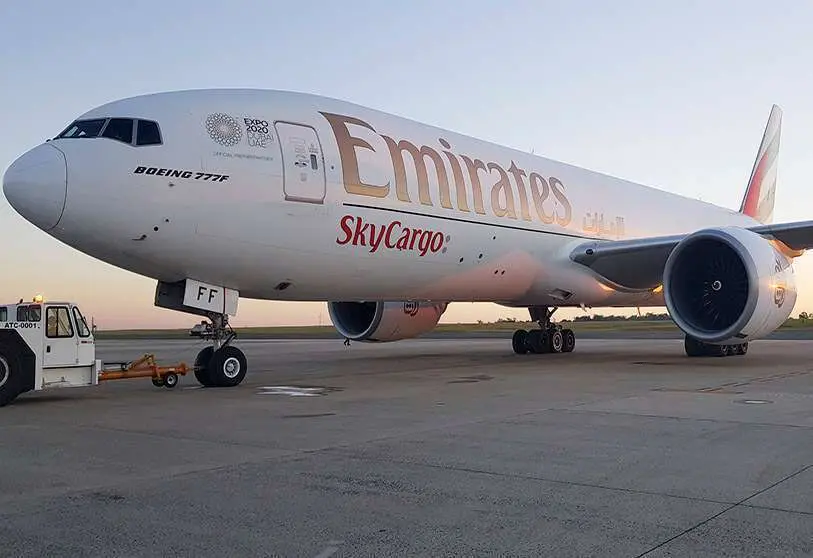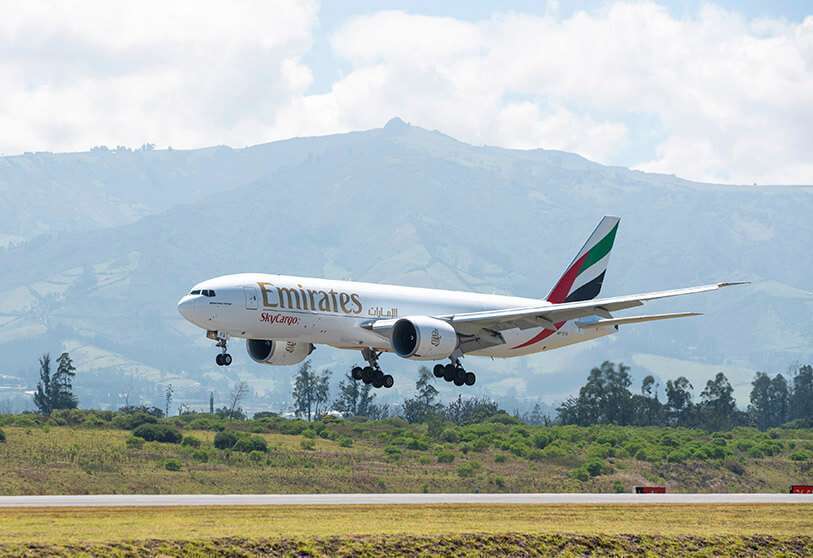Emirates SkyCargo successfully transports Brazilian satellite Amazonia-1 to India

For the first time, Emirates SkyCargo, the freight division of the United Arab Emirates (UAE) airline, has transported a space satellite from Latin America. Specifically the Brazilian Amazonia-1, from Sao José dos Campos to the Indian city of Chennai.
Amazonia-1 is the first satellite to be developed entirely in Brazil by the National Institute for Space Research (INPE), Brazil's main agency dedicated to space research and exploration.
The satellite, which took eight years to develop, will help monitor the ecosystem of the Amazon rainforest, the largest rainforest on the planet. It will be sent into space in February 2021 from the Satish Dhawan Space Centre on the east coast of India.
Transport has not been an easy task and has required close collaboration between Emirates SkyCargo, INPE, Sao Jose dos Campos airport and local partners. They carried out two simulation sessions before the date of the trip in order to be able to transport the sensitive cargo safely. In addition, the airline had to apply for a special permit to operate a Boeing 777 freighter and make other arrangements to ensure that the satellite would arrive in India in optimal condition.
The Amazonia-1 had to be dismantled into multiple components to facilitate loading and unloading of the aircraft, which were packed into large containers to avoid damage. Overall, the total cargo was approximately 22 tons.
Four members of the INPE team travelled with the satellite to monitor the state of the cargo during the flight from São José dos Campos to Dubai first, and then to Chennai.
Although this was the first time it was done from Latin America, Emirates SkyCargo had sufficient experience in the transport of satellites and other space technology components. In 2018, it was responsible for transporting Khalifasat, the first satellite developed entirely by Emirate engineers at the Mohammed Bin Rashid Special Centre, from Dubai to Seoul.
In Brazil, the Emirati airline operates cargo flights to Sao Paulo and Viracopos airports, providing greater global connectivity for the country's exporters and importers.

On 30 March this year, Emirates SkyCargo delivered nearly 500,000 COVID-19 test kits to Sao Paulo airport. The kits were transported from the southern Chinese city of Canton, with a stopover in Dubai.
This is not the only operation related to the pandemic that the company has done. The same week it brought medical supplies to Brazil, it delivered 200 tons of disinfectants and masks from Hong Kong to Sydney, while another flight carried pharmaceutical supplies to the Pakistani city of Karachi.
"At Emirates SkyCargo we are doing our part to join Dubai's efforts to fight the VIDOC-19 pandemic. Through effective management, the city has maintained its position as a global logistics hub for connecting vital cargo including medical supplies, vaccines, food and other essential items. Emirates SkyCargo has established the world's largest hub dedicated to the distribution of COVID-19 vaccines and we stand ready to support not only Dubai but countries around the world, including markets with limited cold chain infrastructure. By transporting vaccines through our extensive network, we hope to help people around the world recover from the devastating impact of the pandemic," said the company's Vice President of Cargo Division, Nabil Sultan, a week ago.
It also has a leading role in transporting food to the UAE and the region. At the height of the pandemic, at the end of March, it brought over 150 tonnes of perishable goods from Pakistan and India to Dubai. Also from the Egyptian capital and from Nairobi. From Dubai it proceeded to its distribution to other destinations in the Middle East.
From the 1st of April the company decided to consolidate its cargo handling operations at Dubai International Airport to achieve a better connection of cargo operations in the world market. The airline's objective is to boost the economy and help companies by keeping global supply chains running smoothly.








